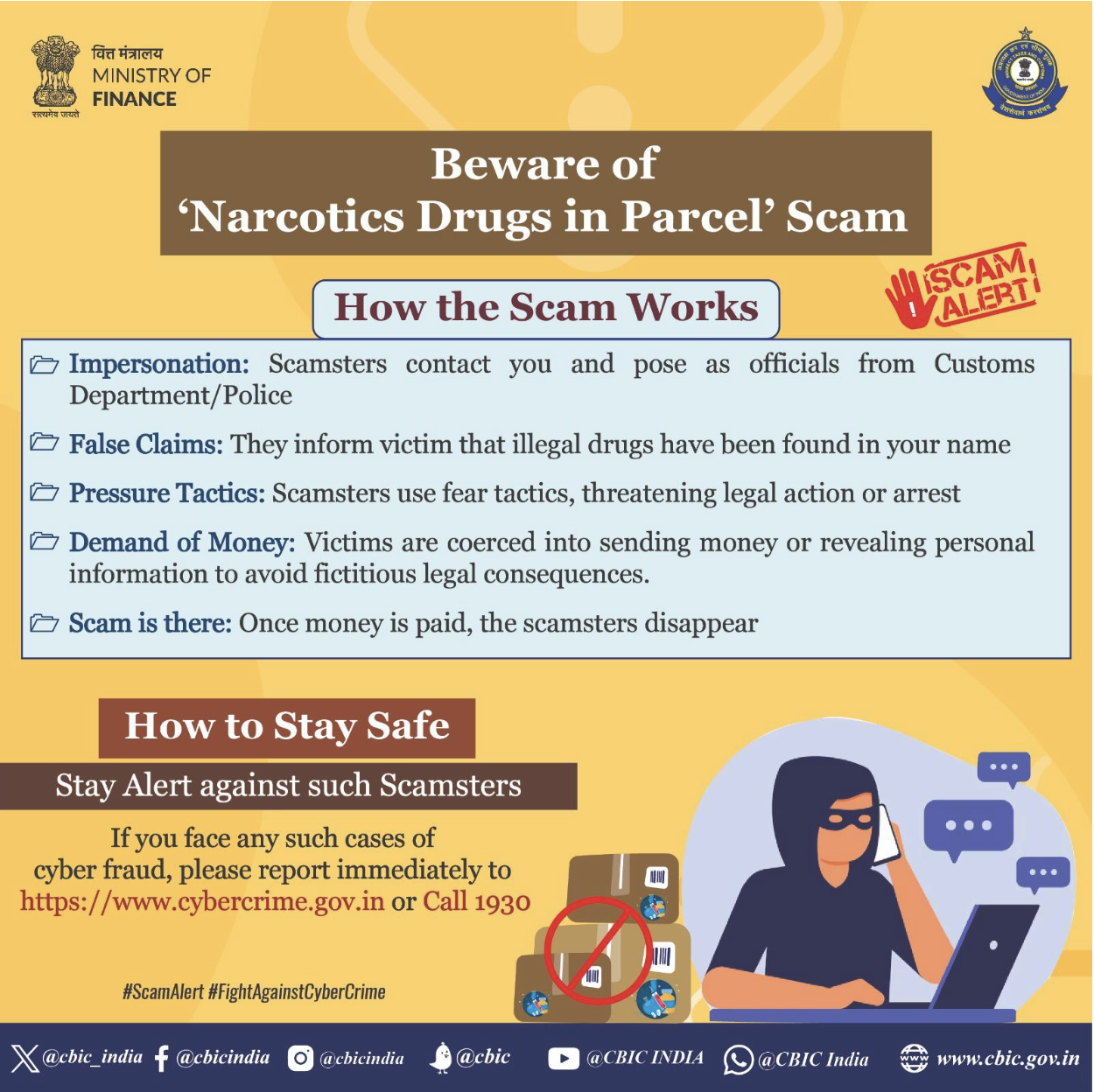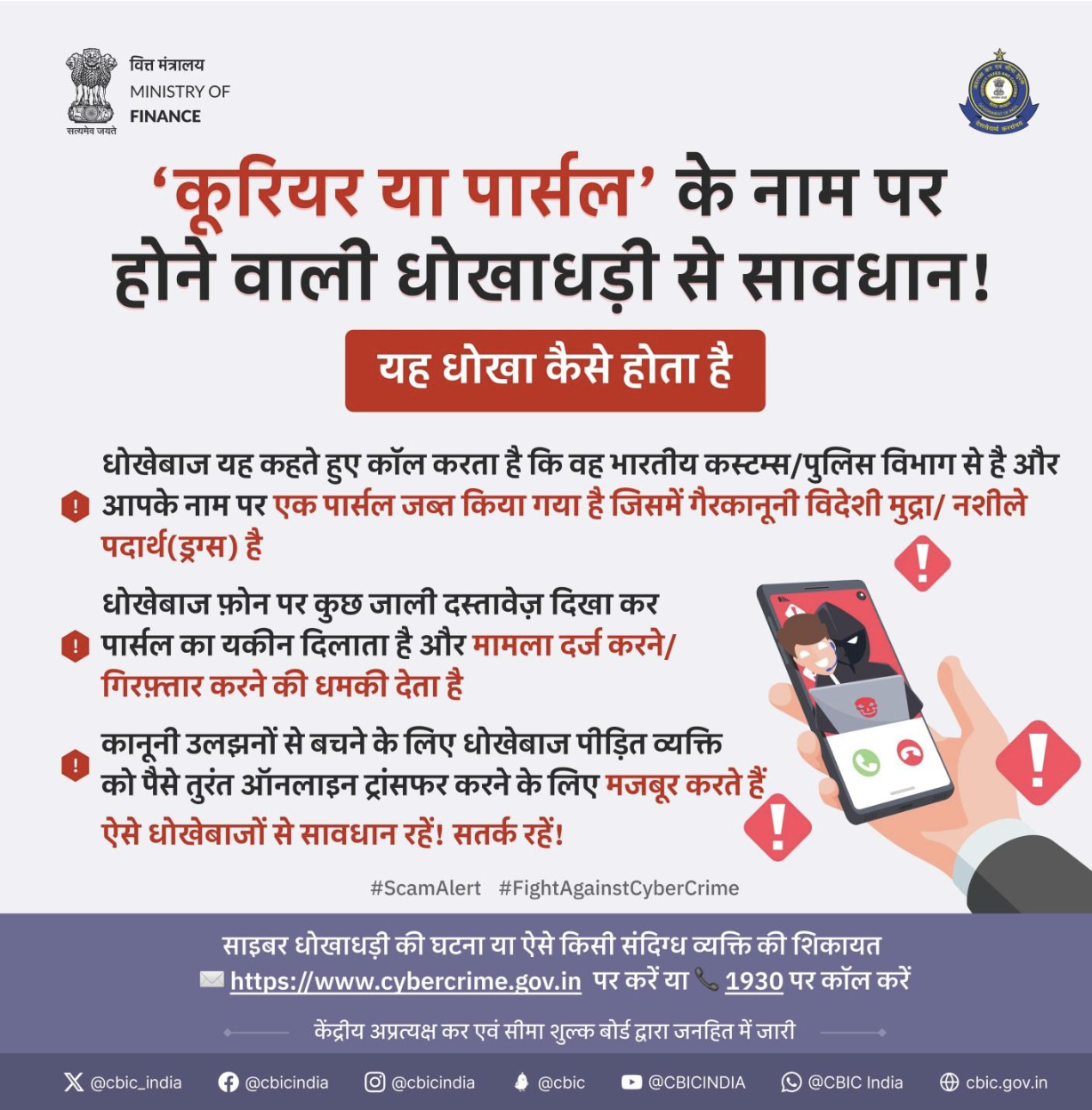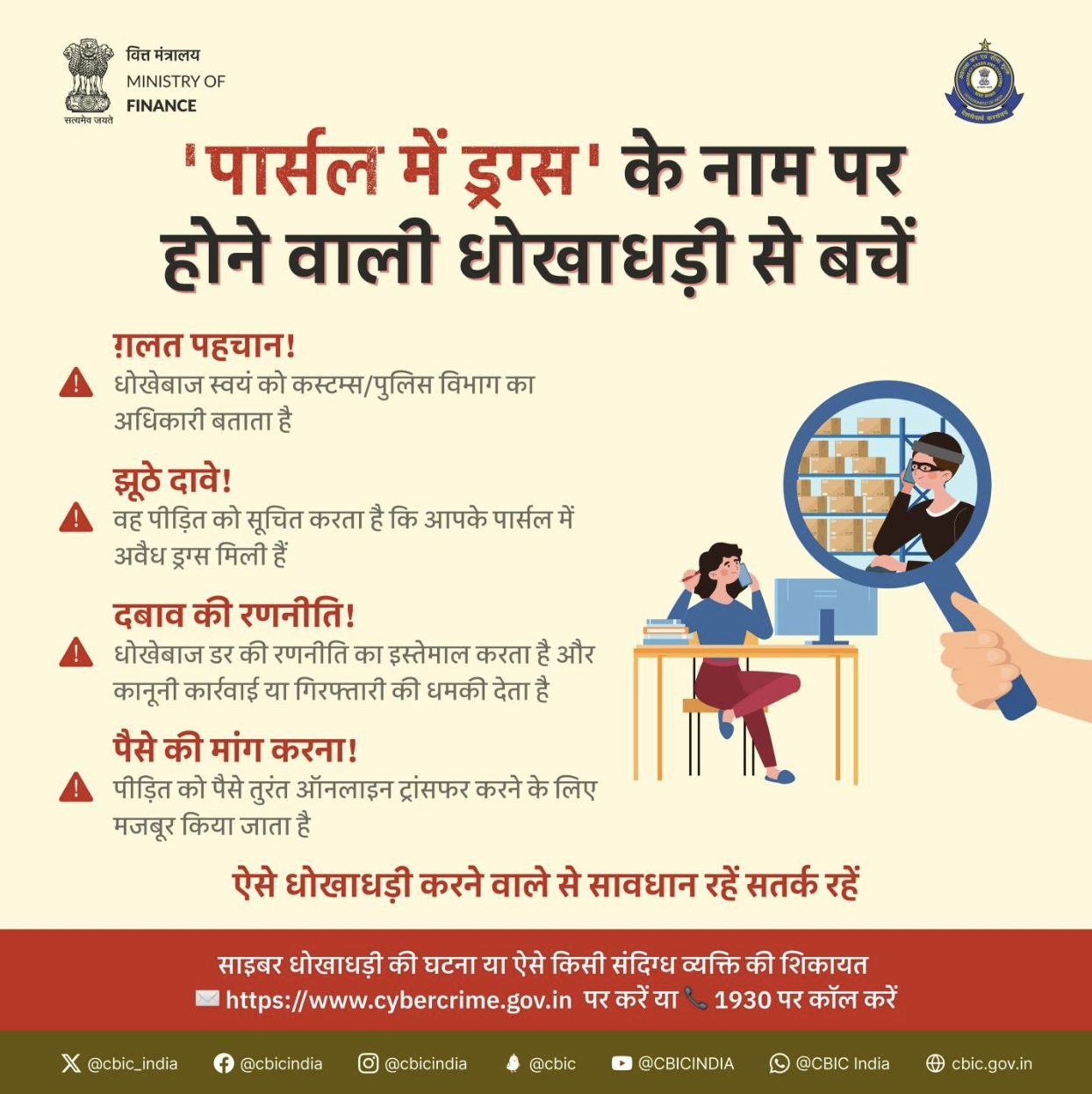Various incidents have come to light through news portals/social media platforms of fraudulent persons posing as Indian Customs officers cheating the public of their hard-earned money across the country. These frauds are primarily done using digital means like phone calls or SMS, and are focused on extracting money through the ‘purported’ fear of immediate penal action.

In order to counter these frauds through public awareness, Central Board of Indirect Taxes and Customs (CBIC) is mounting a multi-modal awareness campaign that includes:
- Newspaper advertisements
- SMS/Emails to the general public
- Social Media Campaigns
- Public awareness campaigns by CBIC field formations across the country in coordination with local administration and trade bodies to spread awareness on this issue.
CBIC advises the public to take the following measures to safeguard themselves from becoming a victim of such scams by:
- DISCERN: Indian Customs officers never contact the general public via phone, SMS, or e-mail for payment of duty in private accounts. Disconnect calls and never respond to messages, if you suspect fraud or encounter any irregularities.
- PROTECT: Never share or disclose personal information (Passwords, CVV, Aadhar number, etc.), or send money to unknown individuals or organizations without verifying their identity and legitimacy.
- VERIFY: All communications from Indian Customs consist of a Document Identification Number (DIN), which can be verified on the CBIC website:
https://esanchar.cbic.gov.in/DIN/DINSearch
- REPORT: Immediately report such cases to www.cybercrime.gov.in or helpline number 1930.

Some of the common modus operandi used by fraudsters are:
- Fake Calls/SMS: Fraudsters posing as Courier officials/staff contact via calls, text messages or emails claiming that Customs have held a package or parcel and requires payment of Customs duties or taxes before it can be released.
- Pressure Tactics: Fraudsters impersonating Customs/Police/CBI officials demand payment of Customs duty/clearance fees for packages/gifts that purportedly have been received from a foreign country and require Customs clearance. Targeted individuals are asked to make payments for the release of their goods.
- Demand of Money: Targeted persons are informed that their package has been seized by Customs due to illegal contents (such as drugs/foreign currency/fake passport/contraband items) or violations of Customs regulations. Fraudsters threaten legal action or fines and demand payment to resolve the issue.

 Matribhumi Samachar English
Matribhumi Samachar English


